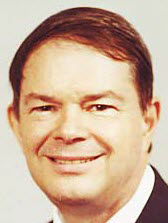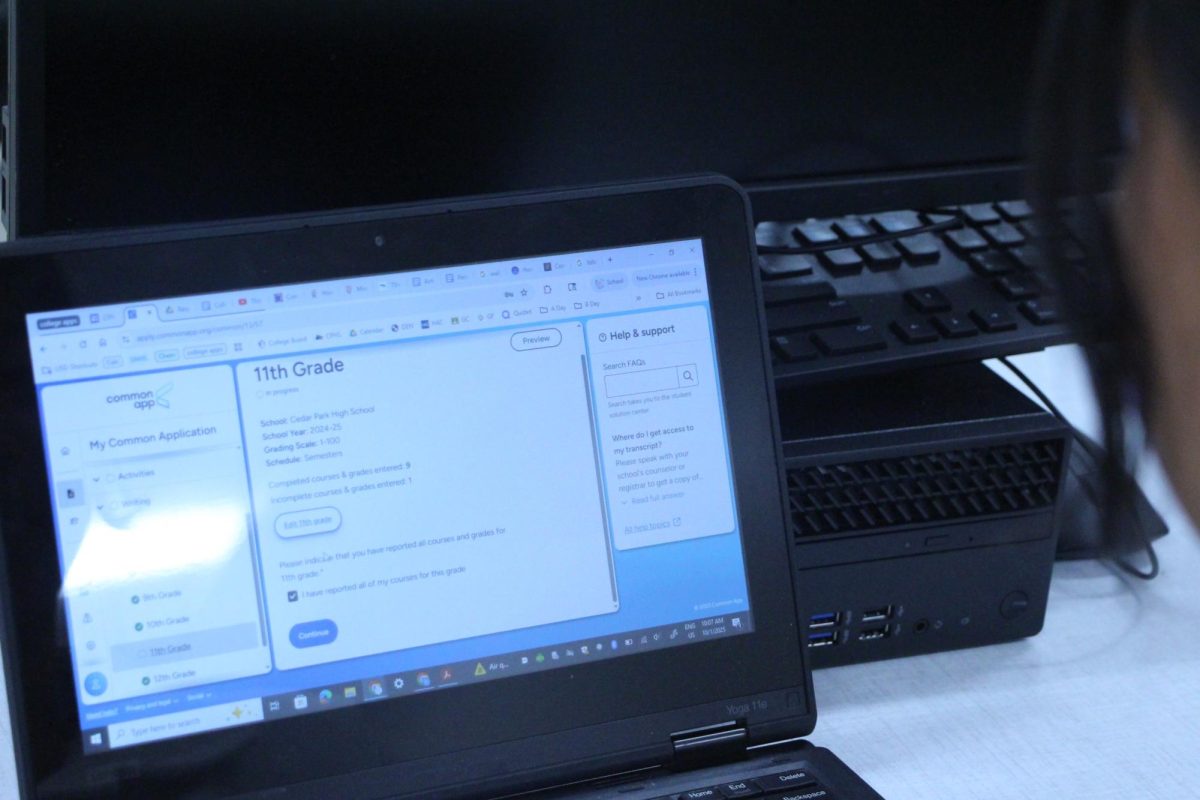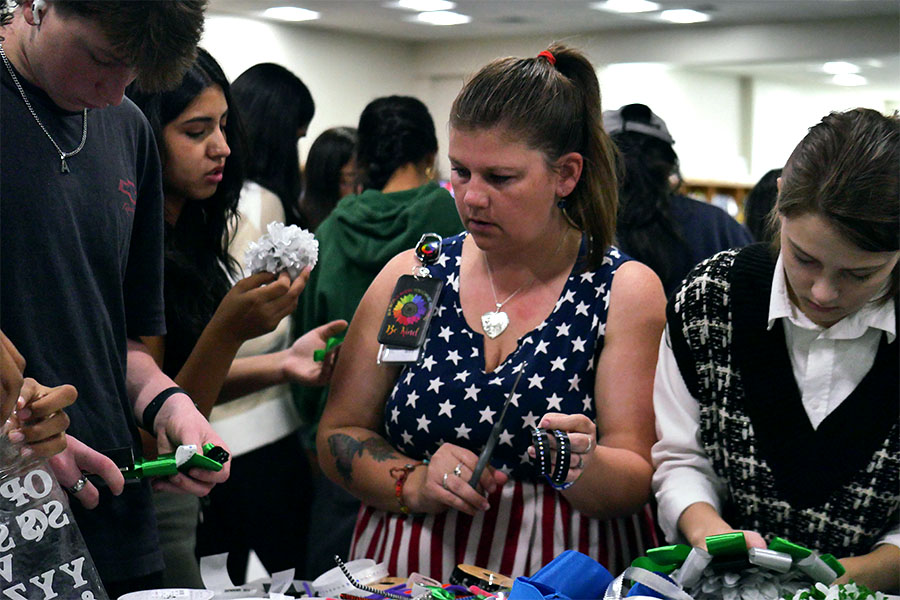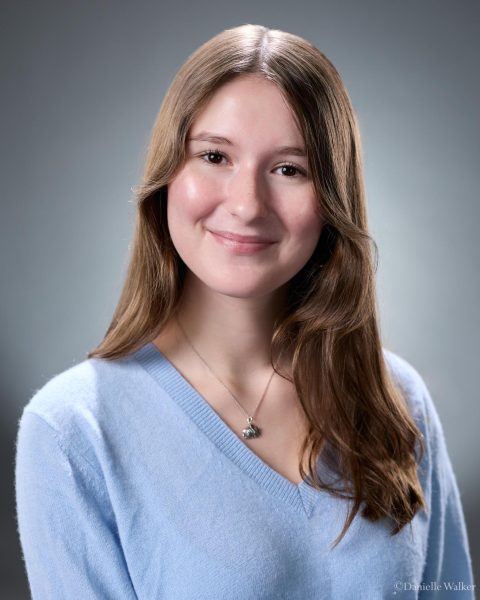
Q: Why are you running for school board?
A: Well, the school’s education is very important to our students, and so I want to make sure that our students get the best education that they possibly can. And so if I can help with that, which I think I can, then I want to play a part. And I know, of course, that parents feel the same.
Q: What past experiences do you believe make you qualified to be a school board member?
A: Well, I’ve been a school board member before, so I served on the Leander ISD school board for a total of 18 years. The last time was about 10 years ago, but I decided that I shouldn’t serve too long in one stretch that it kind of, it might shut out other people who would want to run because of the advantage of incumbency. And now I forgot the question, would you repeat it please?
Q: What past experiences do you feel make you qualified to be a school board member?
A: Yeah. I also have a lot of business experience. I’ve in my time worked for IBM. And I’ve also had a lot of experience in education. I’ve taught at the college level at the University of North Carolina and at the University of Texas and at St. Edwards in different times. I guess that’s all.
Q: Are you satisfied with Dr. Gearing’s job as superintendent? Why or why not?
A: I have only met Dr. Gearing once, so I don’t have very much to say about him as a man. I do see that that learning seems to have trended down slightly and that concerns me. I’m not saying that it can’t be a blip. But still, I would like to see things working as effectively as they can. I’d like to see the best possible education. I have no reason to think that Dr. Gearing cannot do that. I know that in the past when the board has insisted on a focus on academics, which is my primary concern that there’s been an effective response, based on my previous experience. Another thing that I’m concerned about is that people tell me that parents are not being allowed in. They’re kind of being shut out. And those, of course, are just people that I talk to. I don’t have any firsthand evidence of what’s going on, but that concerns me and it’s something that I would like to see change. And that I think could be changed if that’s what the board wants to see happen.
Q: What do you believe is the biggest challenge facing students today?
A: That’s a good question. Obviously, it’s very competitive, probably more so all the time. So, that means again, we need to give students the best start that we possibly can. I guess there’s also a need to help people to present themselves well so that they can get a good shot at taking part in our society and economy. I think there might also be a challenge that perhaps there’s been a decline in interest in academics and understanding the importance probably with parents and and maybe with students. So that’s a challenge that students face. But again, it’s something that I think can can be overcome.
Q: Do you believe that LISD sufficiently addresses that challenge?
A: You know, LISD is a good district, but I think we can do better. At least, let’s try to do better. Let’s strive to be the absolute best that we can be.
Q: In your mind, what’s the ideal takeaway you want for an LISD graduate?
A: Well, I guess I would say the graduate profile is, is pretty accurate and, or I agree with the graduate profile, let me put it that way.
Q: So I know you have two kids, they’re all grown up now, and what kind of experiences did they have with the district, and how would that impact your time on the board should you win?
A: Their experiences were very positive. They both thrived in the LISD environment, and I’m very pleased with Leander ISD overall, as I’ve said before.
Q: LISD has a long range planning committee tasked with making recommendations regarding the changing size of the district, facilities, and innovation academies. What do you think are the biggest priorities LISD should be considering in terms of long range planning?
A: Well, this is controversial, but evidence shows that something that correlates very well with academic achievement, probably most, I think better than most anything that’s been studied, is the size of the schools. So the smaller the schools, the better the students do. It’s a bigger effect if you look at the research than the size of the classroom, which that surprised me, but the evidence is there. I admit it’s been a while since I’ve gone out and Googled that stuff, so there may be more things that I don’t know about, but, and I know that smaller schools are expensive, but they’re not near as expensive as smaller classes. So I think that’s something that we should take a look at.
Q: How do you believe LISD should go about facility optimization regarding schools with low enrollment?
A: Yes, I sort of forgot that the district’s not growing like a weed anymore. I’m still remembering 10 years ago. I guess I’d have to think about that. I’m not sure. It’s possible that the best thing is to operate the schools under capacity, that makes them smaller schools. I haven’t seen cost information on that, or really even know how to get it, so I’m just, I’m throwing out an idea that I don’t know that I can back it up, but I think we do need to look at creative alternatives, so I’m feeling free to be open about things like that. I guess, other than that, it mostly would rely on, it would depend on cost analysis. Now, what, you know, how much does it cost to keep a larger school open? Do you have to heat and cool it all? I don’t know. There are a lot of questions there that I’m not prepared to answer, but that I would certainly be willing to suggest that we investigate.
Q: Texas has not increased student allotment since 2019, and many districts say that the state is not fully funding public education. What is your view and should anything be done to increase public school funding?
A: Well, there’s really only one thing to do to create the state to increase the state allocation and that’s to lobby the legislature since they control it. Maybe work with parents to do the same, but that all flows from the legislature. Of course, I don’t know where we are locally at the maximum tax rate, so that has a big difference. I know the state has typically in the past capped the tax rate. And so the combination of those could create a situation where the school district would have no remedy at all, if funding was insufficient to do the job. So, if we reach a situation where there’s a combination of those, then that’s a really big problem. Probably those, the state allocation should at least increase with inflation.
Q: During the summer, it was announced that LISD was facing a roughly 13 million deficit. What do you attribute to that deficit and how do you believe it should be addressed?
A: Well, obviously the having a deficit like that means either that the board and the administration together decided to do it or they did a poor job of estimating. I think that’s probably a failure. On the other hand, the deficit is not that large compared to the fund balance. I forget what fraction it is, but it, you know, might be a quarter or something. And anyway, the fund balance is still above what’s recommended, and it’s still in the range, even higher than that, that we recommended during my time on the board. So it’s not something to panic about, but obviously it needs to be addressed. And I don’t have the information right now to say what the best way to address it is. Approximately 85 percent of the of the district’s expenses are salaries, and that’s an expense that’s very difficult to control. I mean, if you don’t pay people adequately, you’re not going to get good teachers and if you don’t get good teachers, you’re not going to get good results. So that needs to be maintained. I think we need to really try to scrub the budget because the burden on taxpayers is significant. One way or another, we’ve got to solve that problem. It cannot continue. We cannot continue to have deficits of the size that we have now. So that’s all I have to say on that.
Q: There has been growing polarization and tension among school boards across the country, and we’ve even seen some of that tension in our own board. How do you see yourself working with board members you may disagree with?
A: I have always worked really well with board members I disagreed with, and I have to say that in my time, the board did an excellent job of working together. I have heard from parents and others and seen things on the board meetings that make me realize that’s not so true. But I plan to do my part to make the working relationship as good as it can be, maybe even to the extent of speaking privately with people who are disruptive. But I have no problem with people who disagree with me. That’s how the system’s supposed to work and that’s how we get the best results.
Q: In the last two years, election integrity has become a hot topic in politics. Do you believe there are problems with our election system locally or nationally?
A: I do not. I am a former election system examiner for the Texas Attorney General’s office. And so I have worked with the Attorney General and the Secretary of State to examine and certify many election systems and to refuse at least one election system that I can remember in the state of Texas, and I don’t think there are security problems. At least I would be very surprised if there were, in the election systems that we’re using, most of them that I’m familiar with throughout the state. There can, I guess, always be somebody, you know, in the polls and marking ballots or something like that, but that’s also very difficult to do because of the records they keep. They keep track of who has voted and the number of ballots used and things like that. So my answer is I don’t think we have any serious election fraud in Travis or Williamson County and probably not anywhere in Texas.
Q: Would you accept the outcome of the election if you lost?
A: Absolutely.
Q: And what’s your favorite high school memory, to finish up?
A: You know, I was, I really enjoyed working on the yearbook in high school. That was something that gave me a lot of pleasure. It was fun working with people and writing and taking photographs and all that kind of stuff. It was a little bit different than I mean, we had to go in the dark room and develop the photographs and print them and all that kind of stuff, but still, that was a very rewarding and enjoyable experience.






![As her hair blows in the wind, senior Brianna Grandow runs the varsity girls 5K at the cross country district meet last Thursday. Grandow finished fourth in the event and led the varsity girls to regionals with a third place placement as a team. “I’m very excited [to go to regionals],” Grandow said. “I’m excited to race in Corpus Christi, and we get to go to the beach, so that’s really awesome.” Photo by Addison Bruce](https://cphswolfpack.com/wp-content/uploads/2025/10/brianna.jpg)


![Broadcast, yearbook and newspaper combined for 66 Interscholastic League Press Conference awards this year. Yearbook won 43, newspaper won 14 and broadcast took home nine. “I think [the ILPC awards] are a great way to give the kids some acknowledgement for all of their hard work,” newspaper and yearbook adviser Paige Hert said. “They typically spend the year covering everyone else’s big moments, so it’s really cool for them to be celebrated so many times and in so many different ways.”](https://cphswolfpack.com/wp-content/uploads/2025/05/edited-ILPC.jpg)





![Sitting with her friend senior Sohpia Struve at last year’s Austin City Limits Festival, senior Ava Zuniga poses for a picture under a pavilion. They are frequent attendees at ACL, an annual music festival at Zilker Park. “I would recommend seeing a bunch of people,” Zuniga said. “This past year, we camped out for Chappell [Roan] for a really long time. I think the whole point of ACL, [which] is a lot of fun, is that you can go see so many different people, even if you don’t know them. So by camping by one person, it really limits yourself from being able to go see a bunch of people.” Photo courtesy of Ava Zuniga](https://cphswolfpack.com/wp-content/uploads/2025/10/EE9E9484-FE6F-4AA0-B5F5-0C177AB32841-1200x857.jpeg)
![Looking down at his racket, junior Hasun Nguyen hits the green tennis ball. Hasun has played tennis since he was 9 years old, and he is on the varsity team. "I feel like it’s not really appreciated in America as much, but [tennis] is a really competitive and mentally challenging sport,” Nguyen said. “I’m really level-headed and can keep my cool during a match, and that helps me play a bit better under pressure.” Photo by Kyra Cox](https://cphswolfpack.com/wp-content/uploads/2025/09/hasun.jpg)

![Bringing her arm over her head and taking a quick breath, junior Lauren Lucas swims the final laps of the 500 freestyle at the regionals swimming competition on date. Lucas broke the school’s 18-year-old record for the 500 freestyle at regionals and again at state with a time of 4:58.63. “I’d had my eye on that 500 record since my freshman year, so I was really excited to see if I could get it at regionals or districts,” Lucas said. “ State is always a really fun experience and medaling for the first time was really great. It was a very very tight race, [so] I was a bit surprised [that I medaled]. [There were] a lot of fast girls at the meet in general, [and] it was like a dogfight back and forth, back and forth.” Photo by Kaydence Wilkinson](https://cphswolfpack.com/wp-content/uploads/2025/03/Kaydence-2.7-23-edit-2.jpg)
![As the support team sits and poses for a photo in the cafeteria with the counseling team they eagerly wait to start their day. "We [all] seem to be a team, I get up every day and there's days where I don't want to go to work today, but I'm thankful that I have a job and I'm blessed to have what I have," Christopherson said. Photo Courtesy of Julie Weltens.](https://cphswolfpack.com/wp-content/uploads/2025/01/AF9E8470-10D7-4C91-BF28-EC8F86BAB66C-1200x852.jpeg)
![Jumping off the ground, senior linebacker Bennett Patton snatches the ball out of the air for an interception at Thursday’s game against Chaparral. Patton had two interceptions in the 56-14 victory, tying the school record for interceptions in a game. “I was just playing the game,” Patton said. “[I’m] going to go into next week, forget about it and stay humble.” Photo by Harper Chapman](https://cphswolfpack.com/wp-content/uploads/2025/09/bennett-interception.jpg)














